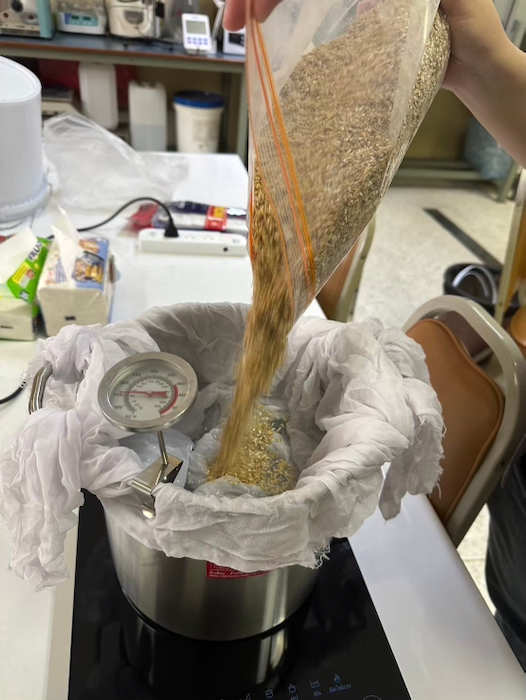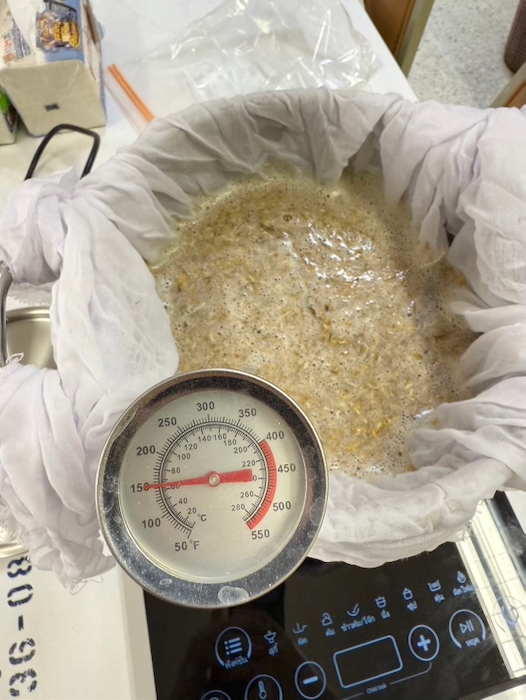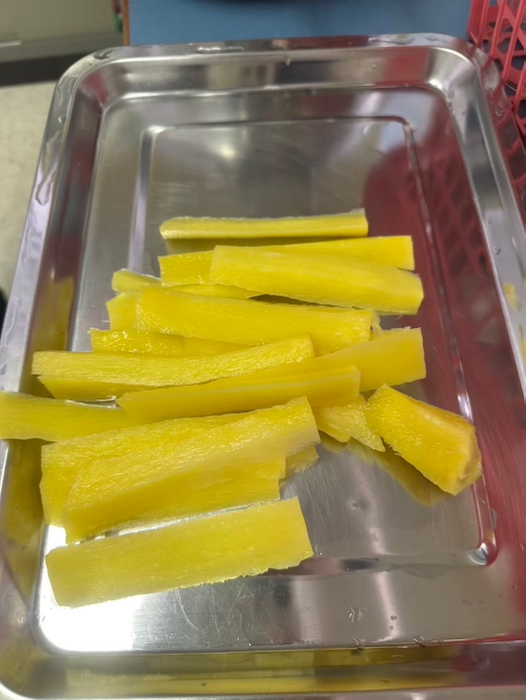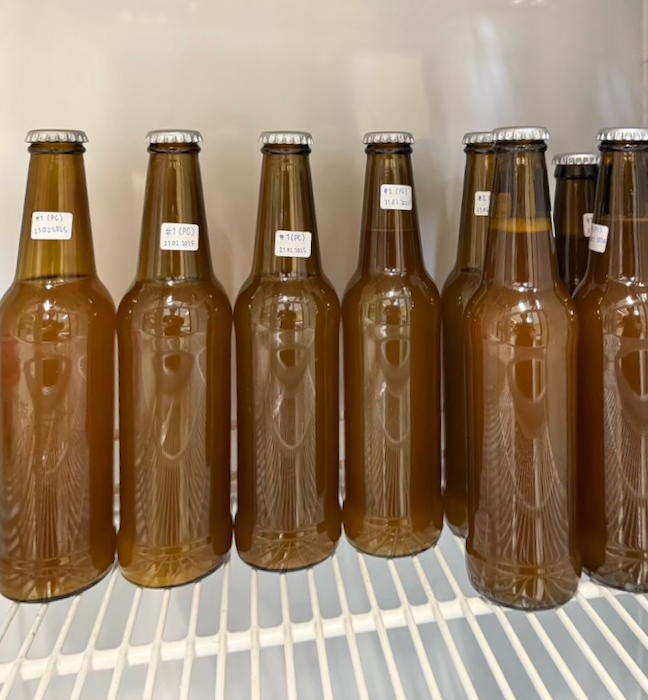eXtensions - Monday 30 June 2025
By Graham K. Rogers
![]()
Every engineering student in Thailand produces a final year project. Each year the Engineering Faculty displays posters of their efforts at the Prince Mahidol Hall. Several projects caught my eye this year including a couple of groups that had developed new beverages using local ingredients: one using a new type of sticky rice and pineapple cores that are usually discarded.

As well as the Thai program that teaches traditional Industrial Engineering subjects, including supply chain, materials engineering, and operations management, the Industrial Engineering Department at the Faculty of Engineering has an international program in Dairy and Beverage Engineering. This was originally set up with help from a local manufacturer of dairy products, Dutch Mill, who are based in Nakhon Pathom, not far from the Salaya campus.
For their senior year capstone project, a group of students in Dairy and Beverage Engineering developed a fermented malt beverage using a newly-developed type of sticky rice, Hom Naka, and pineapple core. The alcohol content is some 3% alcohol by volume (ABV). The new rice species was developed to address several agricultural challenges in northern areas of Thailand. It is more able to withstand flooding, and is resistant to plant diseases The pineapple core is a by-product of the canning industry which would otherwise go to waste.
The students in the group were:
The project advisor, Dr. Donlaporn Saetae, specializes in the development of functional food and beverage products.

|

|

|
Two main factors affected the final composition of the beverage: the levels of Hom Naka rice malt and the Pattavia pineapple core. These influenced the consumer feedback received as part of the testing carried out. The students developed 9 formulations, monitoring the alcohol levels before the final sampling by thirty panelists who reported on appearance, aroma, flavor, and texture.

|

|

|
The successful development of the fermented malt beverage showed that the use of the germinated Thai Hom Naka rice and pineapple core can be an effective substitute for malted barley, which would otherwise have to be imported. There are economic benefits from the reduced dependence on imported barley malt and from the reduction of food waste through use of the pineapple core.

|

|
Over the last 30 years, the engineering departments of the Faculty of Engineering have worked to develop several real and potential solutions for problems in society. Research carried out by the students and lecturers has helped develop projects for medical, social, environmental and other areas, demonstrating the responsibility that guides the Faculty of Engineering at Mahidol University.
For more information:
Department of Industrial Engineering
+66(0)2 889-2138 (ext 6201-3)
Graham K. Rogers teaches at the Faculty of Engineering, Mahidol University in Thailand. He wrote in the Bangkok Post, Database supplement on IT subjects. For the last seven years of Database he wrote a column on Apple and Macs. After 3 years writing a column in the Life supplement, he is now no longer associated with the Bangkok Post. He can be followed on X (@extensions_th). The RSS feed for the articles is http://www.extensions.in.th/ext_link.xml - copy and paste into your feed reader.

For further information, e-mail to
Back to
eXtensions
Back to
Home Page